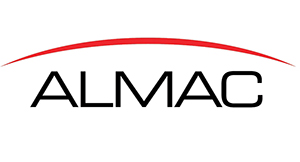Within the pharmaceutical industry, formulation development typically focuses on producing a phase-appropriate drug product. It could be a simple formulation for a Phase I trial or a more complex one with a solid and robust manufacturing method for a larger study.
So, why is it beneficial to outsource these activities? Colin Lorimer, Associate Director of Formulation Development at Almac Pharma Services, explains.
Aside from gaining a competitive advantage in the marketplace by increasing the speed at which development activities are done, companies can both save money and improve their efficiency by avoiding capital expenditure on new buildings and equipment.
By using the expertise, capacity and established facilities of contract development and manufacturing organisations (CDMOs) to develop drug formulations, pharmaceutical and biotech companies can compress timelines and mitigate risk.
CDMO partnerships also provide access to teams of subject matter experts, innovative technology and the assurance that stringent regulatory requirements will be upheld.
Companies will approach a CDMO with very different requirements to address their specific product needs. It is vital that each project is discussed in detail as early as possible so that the CDMO fully understands the expectations, timelines and precise nuances related to the product.

These aspects will be factored into generating a tailored framework for the entire project to ensure milestones are met, enabling the partners to work in true collaboration to achieve success.
Some pharma companies may have minimal technical knowledge at the initial stages of a project. They have the API and an end goal to get to proof-of-concept studies as quickly and efficiently as possible.
However, they may have little knowledge of the steps required to achieve success. This is when an established and reliable partner’s expert technical knowledge is crucial.
An experienced CDMO can guide the pharmaceutical company through excipient selection, develop lead and backup formulations for prototype stability and, ultimately, produce small-scale clinical GMP supplies.
With a multidisciplinary team covering formulation, analytical, project management, quality and distribution, all the key elements of development and clinical supply are covered under one roof. This combined level of knowledge transfer and a deeper understanding of the product results in high-quality outcomes.
In some instance, pharma companies will have already performed limited development activities such as excipient compatibility and prototype development or stability.
Usually, a lead formulation has been selected and a process has been developed (such as roller compaction and compression, for example) at a very small scale (in the low hundreds of grammes range).
The pharma company will then require the CDMO to take the formulation and process it through to clinical supplies, which could be in the multi-kilogram scale.
In this scenario, the CDMO will assemble teams of technical experts who will work closely with the pharma company’s team to review the development work done to date and generate a plan to transfer it onto the CDMO partner’s equipment.
Depending on clinical phase, scale and amount of available API, the process will be “optimised” to ensure that the supplies for the GMP campaign can be successfully manufactured.
This usually involves one or two technical batches that are close to GMP scale. Following the successful production of these batches, GMP batch documentation can be written followed by the manufacture of GMP supplies.
Quality is of paramount importance throughout the process; therefore, companies must ensure that their CDMO partner has an exemplary regulatory inspection/audit history, that they adhere to regulations and can navigate the complex landscape to avoid any potential delays.
Working with a reliable organisation that has established, robust and flexible quality systems in place will offer additional reassurance and enable clear direction on requirements in advance of every stage of the project.
Selecting a CDMO partner that closely aligns with a company’s core values and priorities is another factor to consider.
Pharmaceutical companies should consider a partner that has a strong track record and evidence of shared values and goals, which can be demonstrated by careful examination of their company culture. In doing so, there is a higher likelihood of stability and reliability for a long-term successful partnership.
Summary
In summary, outsourcing formulation development has many advantages for pharmaceutical companies. The depth of knowledge, expertise and capabilities that a CDMO provides cannot be overstated.
A pharmaceutical company is highly specialised in its field; partnering with an experienced CDMO offers flexibility and learned experience from multiple projects.
This accumulated knowledge will help to bring a product to market at a faster pace by anticipating challenges, solving problems early and developing unique solutions based on each specific project … all while cutting investment costs.
In the ever-evolving landscape of the pharmaceutical industry, outsourcing remains a smart and strategic choice. Companies that partner with CDMOs gain access to specialised expertise, advanced technologies and flexible capacity while freeing up capital for further investment.
Case study
For all pharma and biotechnology companies, sustainability is a key consideration in terms of keeping their end-to-end supply chains as streamlined and efficient as possible. This also extends to their partners and suppliers.
Almac Pharma Services was recently approached by a client requesting GMP supplies without the standard technical transfer batches.
This meant taking their in-house developed formulation and agreed process and proceeding straight to GMP manufacture. Their aim was to reduce API and excipient usage, save time and reduce costs to be more ecofriendly.
This was not a typical approach and although the team deemed it to be risky because of the high possibility of failure, they were keen to work with the client to successfully complete the project.
A working group was established with the client’s technical team to develop a risk assessment to review the current development work. This was done using scientific rational to judge the client’s compatibility with Almac’s equipment train and highlight any potential failure modes.
Through transparency and true collaboration, an agreement was reached regarding the best way to proceed. This enabled the client to develop their GMP supplies for clinical studies according to their intended timeline.

